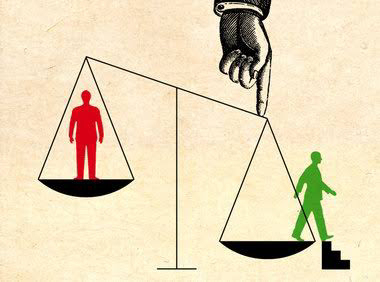The most reassuring ayat of the Qur'an
There are plenty of ayaat which tell us that God would forgive us our sins if we repent to Him. Towards the end of Surah alFurqan, He even says that He would forgive those who call upon others besides Him and commit murder and zina, provided they repent, believe in Him and perform good deeds. In Surah Zumar, he reaches out to the sinners and quite affectionately tells them not to lose hope of God's mercy:
قُلۡ یٰعِبَادِیَ الَّذِیۡنَ اَسۡرَفُوۡا عَلٰۤی اَنۡفُسِہِمۡ لَا تَقۡنَطُوۡا مِنۡ رَّحۡمَۃِ اللّٰہِ ؕ اِنَّ اللّٰہَ یَغۡفِرُ الذُّنُوۡبَ جَمِیۡعًا ؕ اِنَّہٗ ہُوَ الۡغَفُوۡرُ الرَّحِیۡمُ
But by far, the most reassuring ayat on forgiveness that I have come across in the Qur'an is the 70th ayat of Surah Anfal. It says,
یٰۤاَیُّہَا النَّبِیُّ قُلۡ لِّمَنۡ فِیۡۤ اَیۡدِیۡکُمۡ مِّنَ الۡاَسۡرٰۤی ۙ اِنۡ یَّعۡلَمِ اللّٰہُ فِیۡ قُلُوۡبِکُمۡ خَیۡرًا یُّؤۡتِکُمۡ خَیۡرًا مِّمَّاۤ اُخِذَ مِنۡکُمۡ وَ یَغۡفِرۡ لَکُمۡ ؕ وَ اللّٰہُ غَفُوۡرٌ رَّحِیۡمٌ
This ayat was revealed in the aftermath of the Battle of Badr. 70 enemy commanders and soldiers were taken prisoners, while 70 others had been killed in the battlefield itself. These were those people who had actually waged war against Prophet Muhammad ﷺ and his blessed companions. We all know that the Badri companions are held in very high regard because of their unparalleled sacrifices. And these captured soldiers were those who had fought them; so one can only imagine the intensity of their crime.
When they were brought into Madinah, Umar bin Khattabؓ suggested that they be killed as well. But Abu Bakr Siddiqؓ was of the opinion that they be treated as hostages and ransomed against some money. When the Prophet concurred with Abu Bakr, God revealed to him that they should indeed have been killed instead. But since ayaat concerning the ransom of hostages had already been revealed earlier in Surah Muhammad, the decision to ransom these prisoners of war was not overruled. What I’m trying to get to is that these criminals actually deserved a death penalty for their act of waging war against God and His messenger and the Muslim Ummah.
But what does the ayat say? Here, God is asking the Prophet to personally convey to them that He would, in His boundless mercy, forgive them their sins if He finds any goodness in their hearts, and would even grant them something better than what has been taken away from them.
SubhanAllah!
Our sins must be so much lesser in comparison to the sins of these 70 men. Suhail bin Amr was one of these men. Walid bin Walid was another. Both later emerged as illustrious companions of the Prophet and entered the ranks of Sahaba, with whom Allah has declared His pleasure.
Does this not give us immense hope?
Another aspect of this story is that money was not the only ransom accepted in their case. Those who could teach ten people of Madinah how to read and write were also let off. This tells us that our charity and social services can also act as expiation for our sins. Thus, if we spend in charity or engage in social service or deliver Islamic lectures, we are not doing anyone any favour; we are only atoning for our own sins. Keeping this intention in mind would save us unwarranted arrogance and hubris.
- Dr. Parvez Mandviwala




Comments
Post a Comment